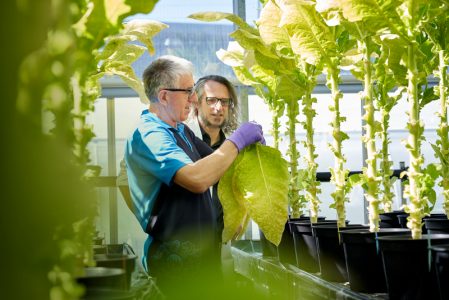Philip Morris International presents ESG in first Integrated Report

Philip Morris International (PMI) has just published its first Integrated Report, a comprehensive overview of the company’s progress in Environment, Social, and Governance (ESG) and its business transformation. The goals include enabling more than 40 million adult smokers who would continue to smoke to make the transition to their low-risk products by 2025.
The Brazilian operation is one of the highlights in the document, with actions to combat child labor in tobacco crops, through support for the Crescer Legal Institute – promoted by Sinditabaco – and the work of its advisors and technicians with the families of small producers. The results of education programs are also reported. They include scholarships from the Family Agricultural Schools of Santa Cruz do Sul (RS) and Vale do Sol and the digital inclusion program in rural schools, which has already benefited more than 2,000 children and young people since 2016. Finally, the results of the Good Agricultural Practices Program and + Campo are described, which guide environmental preservation and safety, among others, to thousands of producers.
The PMI Integrated Report 2019 demonstrates the role of organizational strategy, governance, and performance in creating value in the short, medium, and long terms. The Report also describes how the company is working to reduce the externalities associated with cigarette consumption by replacing them with scientifically proven low-risk alternatives.
“Clarity of objectives is essential for the internal alignment of any company. Since we announced our commitment to building a smokeless future in 2016, we have made significant progress in terms of organizational capabilities, integrating sustainability into all aspects of our transformation, and our business,” said André Calantzopoulos, PMI executive director.
The 2019 Integrated Report demonstrates how PMI focuses its resources on developing, scientific testing and responsible marketing of smokeless products that are a better option than continuing to smoke, to replace cigarettes as quickly as possible fully. The company believes that, with due regulatory encouragement and civil society support, cigarette sales could end in 10 to 15 years in many countries.
Highlights of performance in 2019, through KPIs, include:
⦁ PMI continued to move significant resources towards achieving a smoke-free future, with 98% of total investments in Research & Development and 71% of total commercial assets directed towards products without combustion in 2019.
⦁ The volume of PMI’s smokeless products increased to around 60 billion units, against 7.7 billion in 2016, with an aspiration of more than 250 billion units by 2025. The volume of PMI fuel products in 2019 decreased to 732 billion units, compared to 845 billion units in 2016, reflecting, in part, the impact of migration by adult smokers to non-combustion products.
Huub Savelkouls, Chief Sustainability Officer, stated: “Our Integrated Report aims to provide a comprehensive view of what PMI is, combined with a holistic set of metrics that go beyond our financial reporting, covering our business transformation, as well as environmental, social, and governance issues. We support and seek to be in line with the disclosure standards of the GRI (Global Reporting Initiative), SASB (Sustainability Accounting Standards Board), and TCFD (Task Force on Climate-related Financial Disclosures), allowing all stakeholders to check our strategy and performance.”
The full 2019 Integrated Report is available at PMI.com/IntegratedReport2019.
COMENTÁRIOS:
Destaques
- Escola Aberje leva comunicadores para Amazônia em expedição imersiva
- Encontro de líderes debate responsabilidade do setor empresarial e papel da comunicação na COP30
- Aberje realiza reunião presencial com Comitês de Estudos Temáticos em São Paulo
- A comunicação é forte em mercados em que as associações são fortes
- Aberje participa do painel de entidades no 19º Congresso da Abraji
ARTIGOS E COLUNAS
Marcos Santos Maratona da vidaMônica Brissac Thought Leadership: marca pessoal x reputação corporativaLetícia Tavares Liderança comunicadora: um tema sempre atualHamilton dos Santos Comunicação é estratégica na economia contemporâneaCarlos Parente Um salto ornamental para mergulhar no pires




























